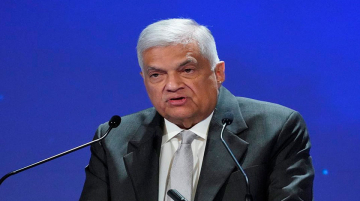
By Lukas Fiala
As the debt crisis across the Global South accelerates, many commentators are weighing in on the drivers and implications of repayment difficulties and defaults. Unsurprisingly, as a major bilateral creditor to many governments across the developing world, China is at the heart of this discussion. Two recent reports shed interesting light on the issue.
In a recent International Affairs article, China-Africa expert Deborah Brautigam focuses specifically on the case of Zambia and the country’s comparatively high level of Chinese loan commitments. Contra to popular allegations that Chinese lending reflects the desire to acquire strategic assets by promoting unsustainable levels of debt, Brautigam identifies Zambia as a case of extreme coordination failure.
With 18 distinct Chinese lenders since 2000 and a large number of different contractors winning Chinese-financed projects (29 in total), Zambia has experienced ‘intense and unregulated competition for infrastructure contracts.’ Paired with China’s relatively weak regulatory framework for overseas commercial activities due to the absence of centralized coordination for company activities, and a history of frequent debt cancellations from China and other lenders that likely further disincentivized local elites to budget adequately, Zambia exemplifies the complex interplay of numerous factors in the current crisis.
Regardless of the reasons behind Zambia’s financial predicaments, however, China’s actions in dealing with the debt issue will be closely monitored across the Global South. Just at the end of July, China agreed on a milestone debt relief deal for Zambia, which was widely hoped to signal China’s willingness to work with other creditors in similar cases going forward.
Yet, while these developments may be good news for Zambia’s balance sheet in the short term, I wonder what China’s significant role in debt restructuring might mean for its image as a development partner across the Global South. A recent study by Pádraig Carmody, Tim Zajontz and Ricardo Reboredo accordingly propose that China is ‘…currently reconfiguring its foreign economic diplomacy in response to the issue of infrastructure-linked debt’, reflecting a ‘substantial reorganization’ from hard infrastructure towards softer engagement which will even affect Xi Jinping’s flagship Belt and Road Initiative (BRI).
In the authors’ words: ‘The BRI is likely to continue, albeit in a scaled-down version, with improved economic risk control and a shift in its financial governance – from public debt funding to public-private partnerships and an enhanced emphasis on the people-to-people exchange axis.’
While this argument seems ambitious given the nature of the BRI as one of Xi Jinping’s key personal policies, it raises the interesting question of how the Chinese development finance architecture will adapt in the face of reputational costs and structural economic pressures.
China’s foray into emerging markets during the Going Out period from the mid-1990s onwards has certainly curried favor with political elites and advanced China’s image as a partner of many Global South governments. China has presented its engagement as different from other external actors and is widely perceived to have offered a different path to development and, ultimately, modernity.
With Beijing now emerging as a key player in international debt negotiations, it will be interesting to see how China harmonizes its more recently found responsibility as a creditor with its longstanding image as a development partner.
Lukas Fiala, Project Coordinator, China Foresight, LSE IDEAS






